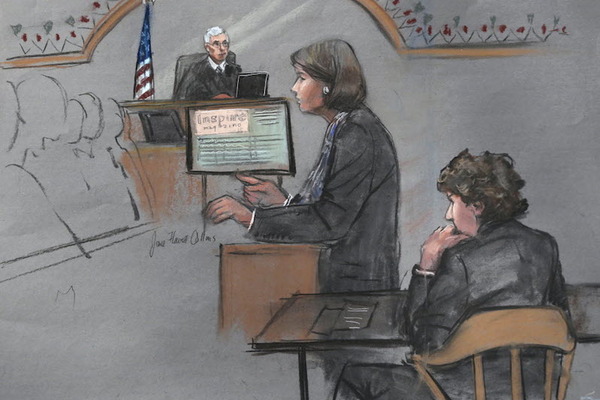Why Tsarnaev deserves the mercy of a life sentence
Let’s work to make penitentiaries do what they were created for; doing penance up repentance. Don’t make him a martyr. let his stew with the memories of those whose lives he destroyed. – AK
by the Monitor’s Editorial Board via CSMonitor.com

The same 12 jurors who convicted Dzhokhar Tsarnaev for the 2013 Boston Marathon bombing last week will soon be asked to impose one of two punishments on him: the death penalty or life in prison with no chance of parole. They will hear testimony from a string of witnesses and listen to arguments from both sides. A decision is expected in May.
This choice, of course, is theirs alone to make. The 12 men and women from the Boston area were selected in this high-profile federal trial in part because they expressed no qualms about capital punishment, which is allowed under federal law. Yet to impose the death penalty, they must do so with unanimous consent. One juror can let Mr. Tsarnaev survive.
This bar is set high because government is rightly concerned about violating the sanctity of life in executing someone. It needs to set a standard far higher than that set by Tsarnaev and his now-dead brother in their brutal killing of innocent people.
The rest of us can only hope the jury makes the right choice, one that will help prevent a similar attack. Deterrence of crime is the centerpiece of justice, more so than retribution and the strong emotions of vengeance and hatred that drive it. Tsarnaev was convicted for his criminal actions, not for what he believes, his motives, or his past. Law enforcement is focused on specific crimes and the prevention of them. The same lens of justice needs to apply to the penalty for Tsarnaev and must deal with this question: Which punishment will influence the actions of other potential terrorists?
His defense attorneys are expected to argue that Tsarnaev deserves a life sentence because he admits the crime, that he was 19 years old at the time, and that he was under the influence of his older brother and perhaps even influenced by his alleged drug use. These points are all debatable but they at least hint at the main reason for imposing a life sentence. A degree of mercy might open the possibility over time that Tsarnaev will renounce his crime and plea for others not to kill in the name of misguided jihad, as he did.
If Tsarnaev does repent and reform, it will not be because he expects to be set free. His life sentence will come with no parole. Any repentance could only be from the heart, and thus all the more effective in potentially persuading others not to follow his example.
The mercy of imposing a life sentence in this case might eventually be seen by Tsarnaev as an expression of grace, which is a powerful antidote to sin. “Go and sin no more,” said Jesus to the adulteress after not condemning her and persuading others not to condemn her and to stone her to death.
Mercy itself has an aspect of the divine to it, as Shakespeare expressed in the “The Merchant of Venice”:
[Mercy] is an attribute to God himself;
And earthly power doth then show likest God’s
When mercy seasons justice.
Those who wish to impose the death penalty in this case may see that irreversible penalty as the better deterrence. But a far more effective deterrence would be the persuasive power of a convict who someday decides not to die as a martyr and who, after reflecting on his actions and the grace shown to him, lives instead as a model to others. That possibility deserves a voice in the jury room.





